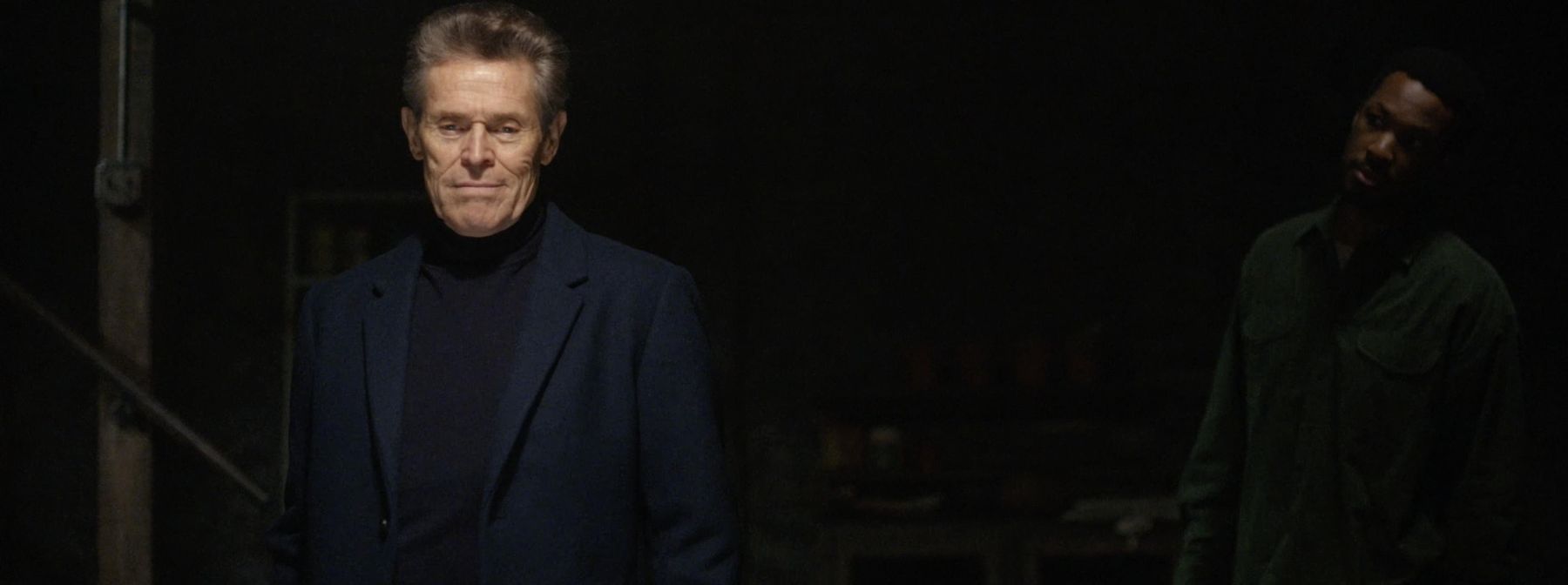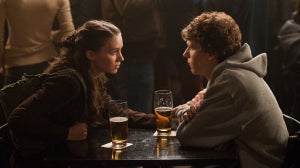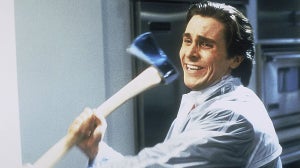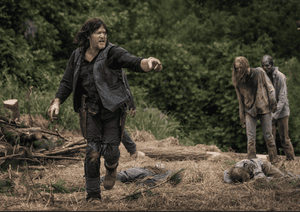
One of Willem Dafoe’s big breakout roles came starring alongside Gene Hackman in the Civil Rights-era true crime drama Mississippi Burning, and his late, great co-star gave him one piece of advice if he wanted a long movie career.
“Gene told me that if you want a good career, never work with a first-time feature director”, he told Zavvi, “and I’ve never followed that advice! It’s always a gamble, but when speaking to a new filmmaker and finding out the way they approach the material, their passion and personal connection to it, even their background, it’s easy to weigh up who can make the jump.
“In the case of Nadia Latif, she’s done a lot of adventurous theatre and had an uncommon intelligence in how she approached this project. She had a special take on this material that won me over, but you can never know until it’s out there, which is true with any film; this is a collaborative art form, you’re always rolling the dice when signing up for something.”
The four-time Oscar nominee, all round beloved character actor and something-of-a-scientist himself helped Latif get her debut film, psychological thriller The Man in My Basement, off the ground just by signing on. An adaptation of Walter Mosley’s 2004 novel, the film follows Charles Blakey (Corey Hawkins), a down-on-his-luck man about to be evicted from his historic family home when shady businessman Anniston Bennett (Dafoe) shows up with an offer he can’t refuse: a payment of $60,000 in exchange for renting out his basement for the summer.
He accepts, but when Anniston moves in, he quickly realises that his intentions weren’t just to use the basement as storage. To say more would be inching too far into spoiler territory, but what Dafoe can allude to is that his biggest takeaway from first reading the script was that it “said the unsayable” when exploring weighty themes such as the relationship between race and power structures in America.
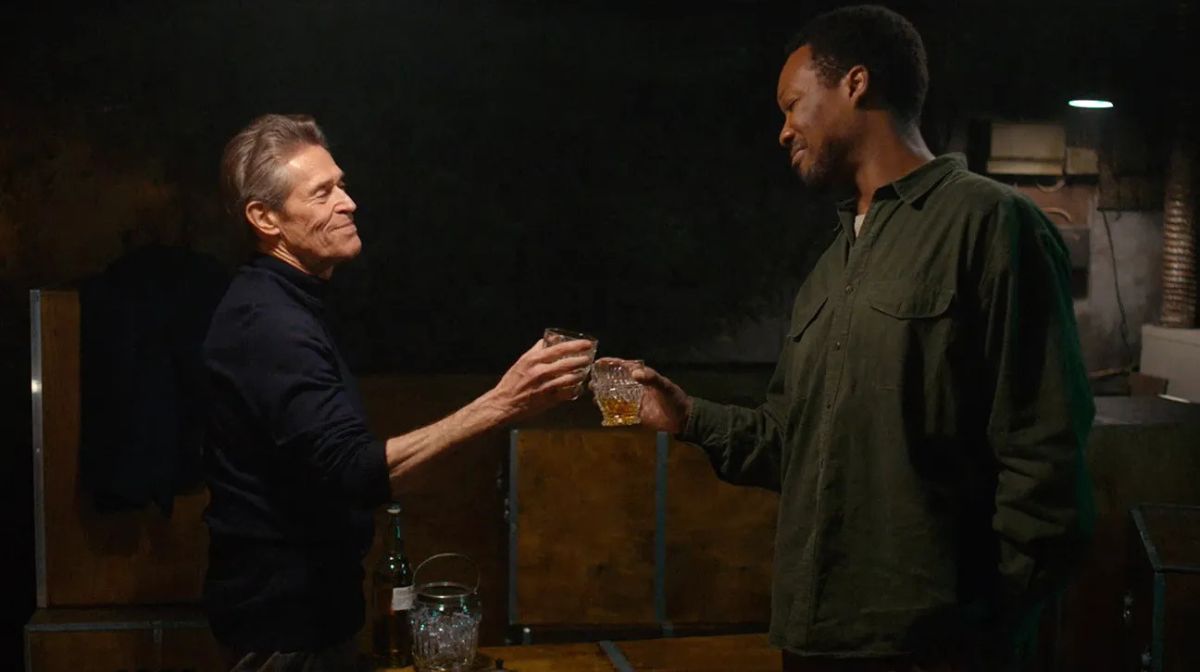
“It’s set up in a way that’s incredible, part psychological thriller and part political polemic, and all incredibly plausible because of the way the relationship between these men and their circumstances has been established. Both are carrying the burden of secrets, and as they speak to each other and connect, their confessions reveal dark histories of power, relations, identity, even questions of morality – that's the kind of material I find most interesting and engaging.”
Dafoe’s co-star has described their intense scenes together as being like “two bulls in the ring”, with Hawkins going so far as to say that working with Dafoe made him a better actor. For a performer as humble as Dafoe, the idea that he could be an inspiration to others is one he doesn’t fully take seriously – he’s the one who is still learning through working with younger co-stars, he says.
“The movie is really hung on Corey’s character, he’s the engine behind the movie, so I really take my cues off him, not the other way round! These characters are increasingly dependent on each other in a way that’s oddly beautiful; they need to collaborate to bring out the devil that lurks inside.
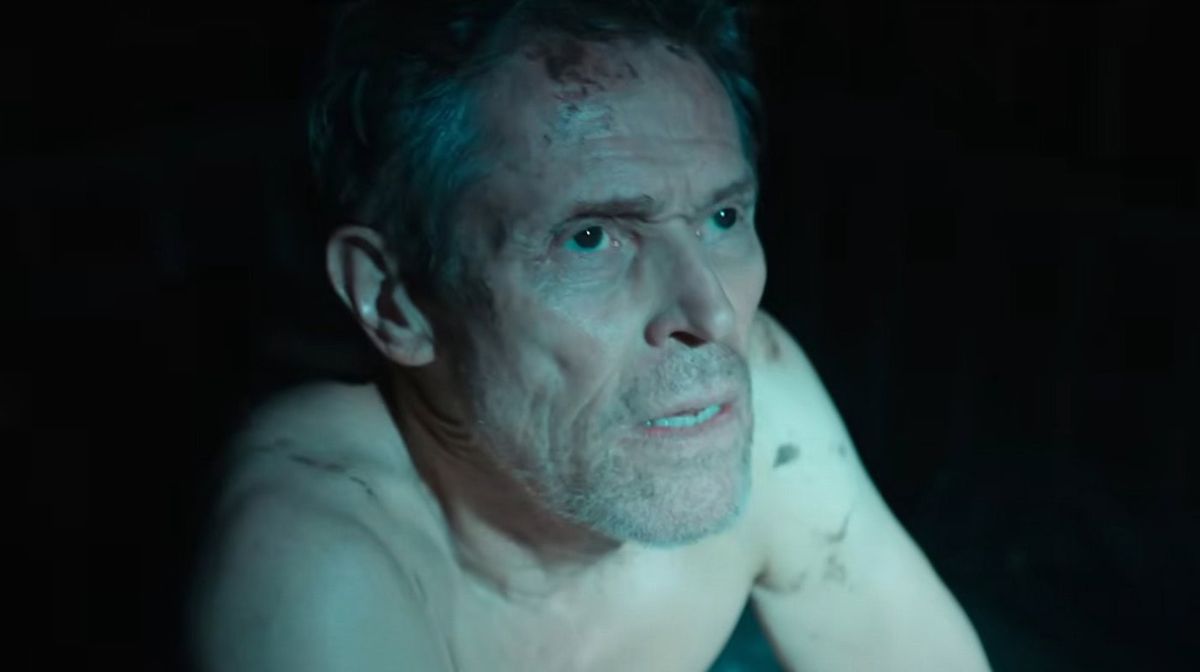
“Technically speaking, those scenes are like chess games, where we’re playing at revealing certain things and hiding others simultaneously. Corey is a very skilled, very well-prepared actor, but he was also flexible, which is the perfect combination; he’s ready to dump all his research and prior rehearsal to take a leap whenever he feels it’s the right moment to.”
For Hawkins, it was the fact his character remained an enigma during this metaphorical chess match which drew him into the script.
He told Zavvi: “Charles leapt off the page not as a hero, but as a shadow of the heavy themes Nadia was tackling. And she wasn’t afraid to run headfirst at them in a way I found refreshing, as I feel that too many films prefer to skirt around them rather than directly address them.
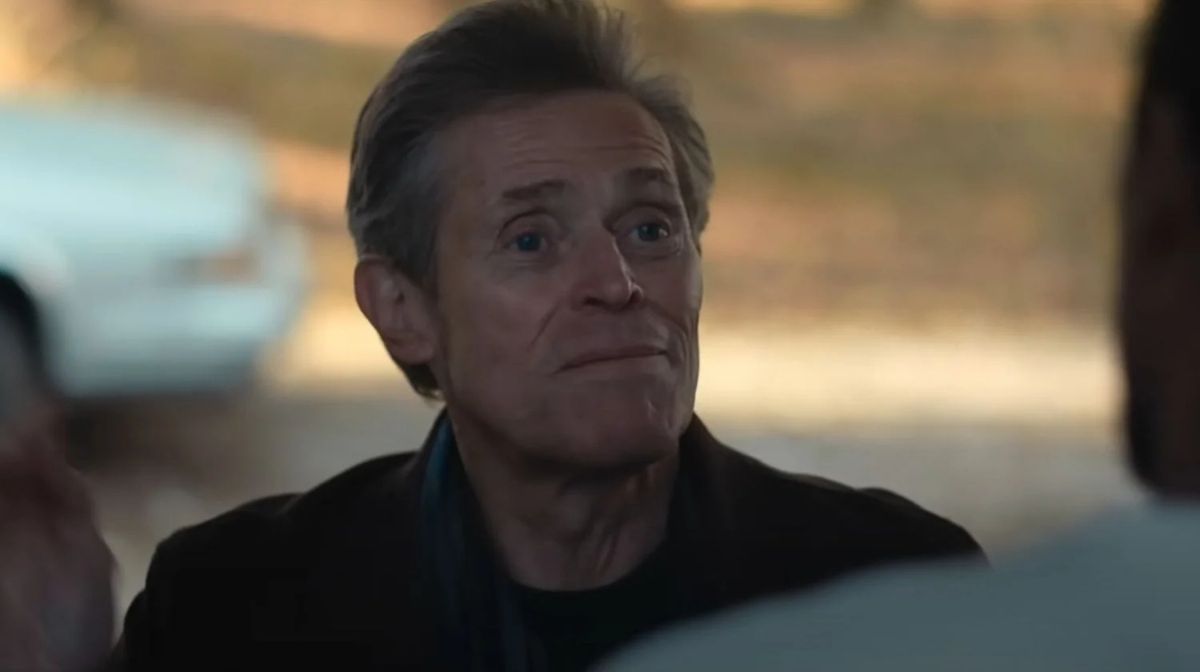
“As a Black man, it was also refreshing to play a character in all his ugliness and still find his humanity; he was an enigma that it was lovely trying to figure out. He was a character I was endlessly curious about, and whenever I feel curious, I run towards it – to do it with this cast was a dream come true.”
Hawkins is an in-demand character actor; since breaking out as Dr. Dre in Straight Outta Compton, he’s appeared in high-profile projects ranging from BlackkKlansman to The Tragedy Of Macbeth, playing Macduff opposite Denzel Washington’s tortured Shakespearean protagonist. Next year, he will get another major outing as part of the stacked ensemble in Christopher Nolan’s The Odyssey, adding epic Greek fantasy to the long list of genres he’s effortlessly able to acclimatise to.
However, The Man in My Basement remains one of his most treasured projects for the rarity of being offered a chance to play the kind of complicated role not usually reserved for Black actors.
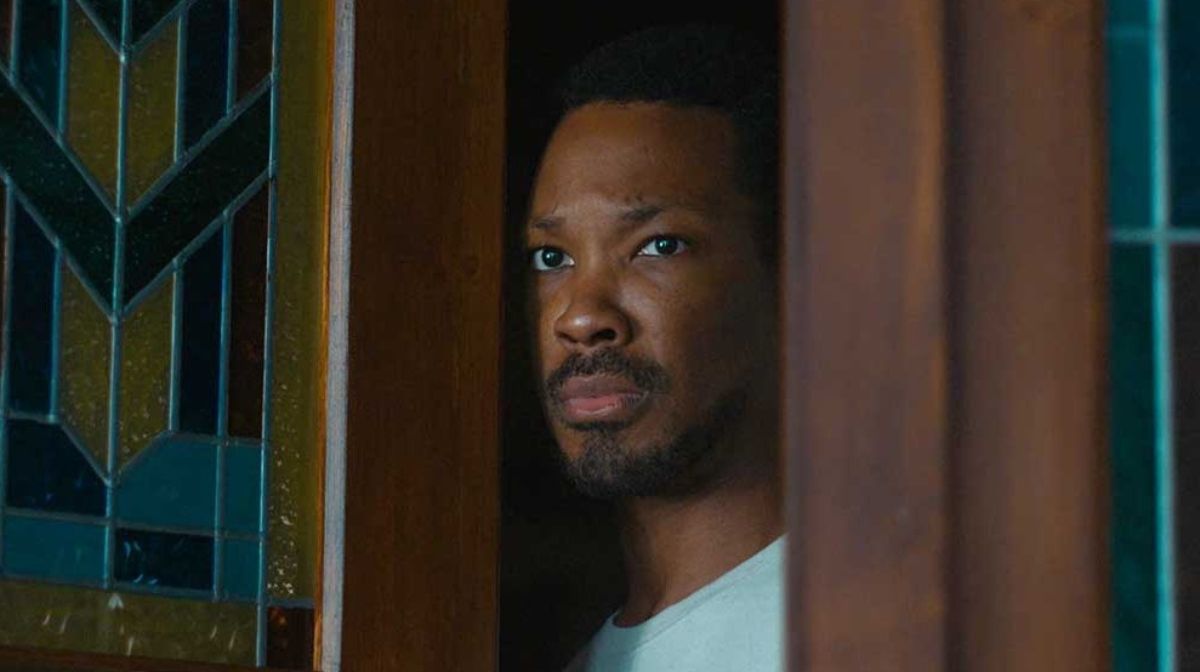
“It’s rare that we get to see all of ourselves, especially in a role that doesn’t feel like a monolith calculatedly designed to represent all of who we are. This is a very specific story, but there’s a universality to seeing him stuck in a state of paralysis, trying to figure out his connection to the past through this situation, especially at a time when a lot of that history is being stripped from us.
“I first came across this book when I was in high school, and it stuck out to me because I knew who these people were. I grew up in a place in DC nicknamed Chocolate City, where you’d see the kind of working, middle class, African American professionals with lives and stories that deserved to be told – I was honoured to have the opportunity to give breath to the kind of man I’d always walk past on the street.
“These are people we pass by all the time and never think about, who may be wrestling with something greater than them beneath the facade of success. We don’t know what’s in their basement, and to bring that to life is one of the best creative experiences I’ve ever had.”
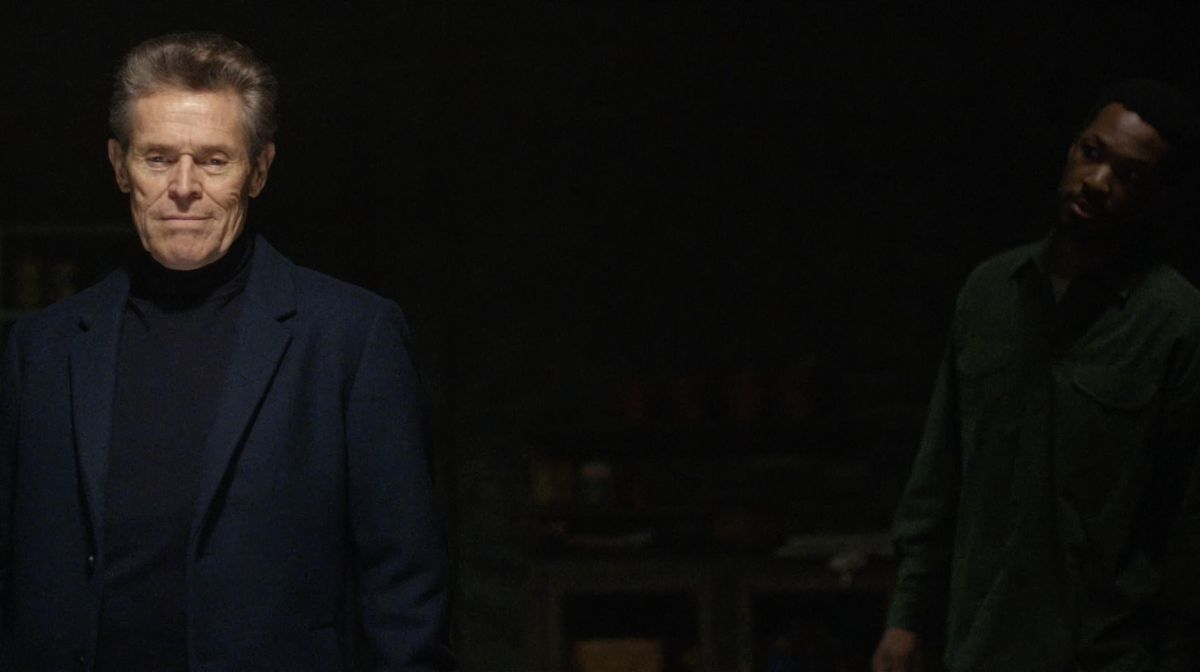
Behind the camera, first-time filmmaker Latif has said that she was the right person to adapt the novel (“my husband says I suffer from high self-esteem!”) because of her distance from the material. It’s a very American story, and not growing up there helped her gain a different perspective on the intense themes explored.
“I was never daunted by that distance, as I felt it was my strongest suit in a weird way, allowing me to look at this material objectively without a direct connection to it. As a Black African woman, looking at a story with themes tied into African American history meant we could rotate the source material; I said very early on I found Charles a frustrating character because his house has all these historic artifacts from African history, he believes he had a magical past life there, but doesn’t care about what’s happening over there right now at all.
“Working with Walter to write the screenplay had me worried, because they say never meet your heroes, but I knew we were going to be fine when we started working together. Whenever discussing potential those potential changes to the story, he would always say to me “well, you’re making the movie!” - he was a collaborator who knew where his work ended and where the film began.”
The Man in My Basement divided audiences when it premiered at the Toronto International Film Festival last weekend, and it’s safe to assume this is exactly what the director and her cast would have wanted. They signed up to make a complicated psychological character study that would provoke debate, and based on the earliest, sharply contrasting takes, they’ve certainly succeeded on that front.
The Man in My Basement is released in select UK cinemas on Friday, 12th September, and will premiere on Disney+ later this year.
